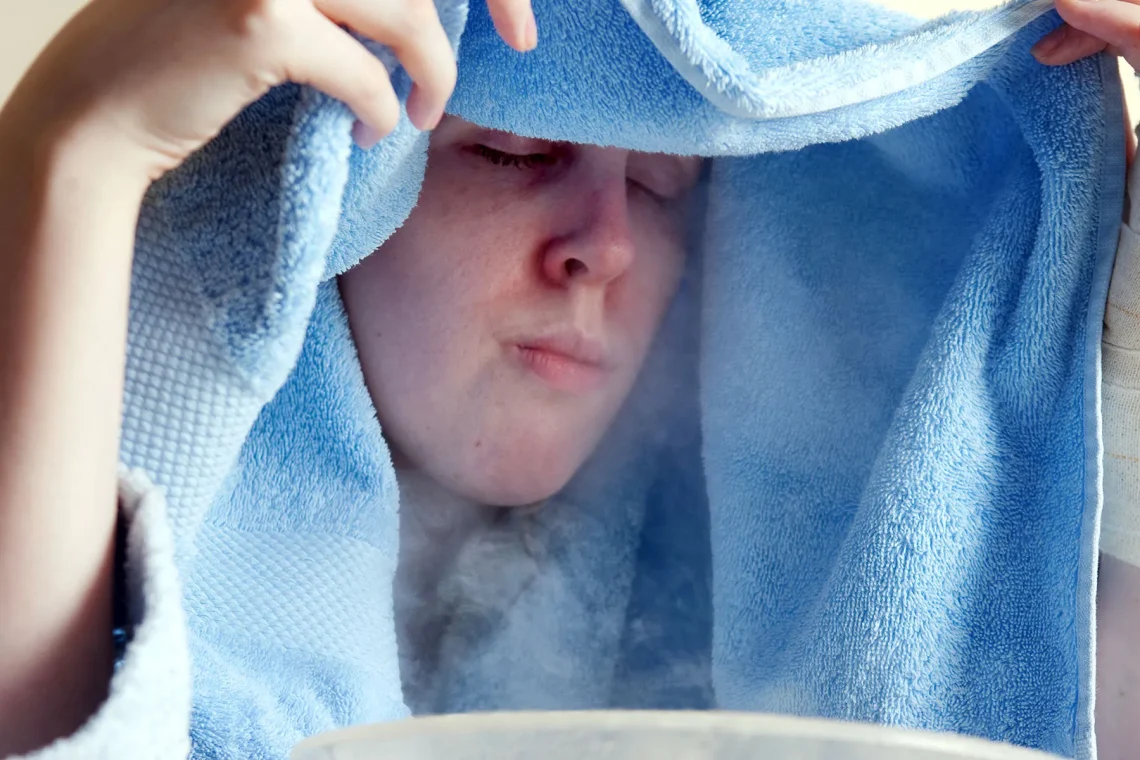Introduction
A persistent cough is one of the most common and uncomfortable symptoms of bronchitis. Whether acute or chronic, bronchitis causes inflammation in the bronchial tubes, leading to irritation, mucus buildup, and frequent coughing. While coughing helps clear mucus from the lungs, excessive coughing can disrupt sleep, cause chest discomfort, and prolong recovery. Thankfully, several home remedies and over-the-counter (OTC) options can help soothe a bronchitis cough and promote healing.
This article explores effective natural remedies, safe medications, and lifestyle tips to manage a bronchitis-related cough.
Why Does Bronchitis Cause Coughing?
Bronchitis occurs when the lining of the bronchial tubes becomes inflamed. This inflammation triggers:
- Excess mucus production
- Irritation of airways
- Cough reflex to clear mucus and pathogens
The cough can last several weeks even after the initial infection clears because the airways need time to heal.
Effective Home Remedies for Bronchitis Cough
1. Stay Hydrated
Drinking plenty of water thins mucus, making it easier to expel. Aim for 8–10 glasses daily, including warm fluids like herbal tea or clear broth.
2. Use a Humidifier
Dry air can worsen coughing and throat irritation. A cool-mist humidifier adds moisture to the air, soothing the bronchial passages and easing mucus clearance.
3. Try Steam Inhalation
Inhaling steam helps loosen mucus and reduce airway irritation.
How to do it:
- Boil water and pour it into a bowl.
- Cover your head with a towel and inhale the steam for 5–10 minutes.
(Adding eucalyptus oil can provide additional relief.)
4. Honey for Cough Relief
Honey is a natural cough suppressant with antibacterial properties.
Tip: Take 1 teaspoon of honey before bedtime to calm nighttime coughing. (Not suitable for children under 1 year.)
5. Warm Saltwater Gargle
Gargling with warm saltwater (½ tsp salt in 8 oz warm water) can soothe throat irritation and reduce coughing caused by bronchitis.
6. Herbal Remedies
- Ginger tea: Anti-inflammatory and immune-boosting properties.
- Peppermint: Acts as a natural decongestant.
- Thyme tea: Known for its respiratory health benefits.
Over-the-Counter (OTC) Medications for Bronchitis Cough
1. Expectorants
Help thin mucus, making it easier to cough up.
Example: Guaifenesin (Mucinex).
2. Cough Suppressants (Antitussives)
Reduce the cough reflex when coughing is too frequent or disruptive.
Example: Dextromethorphan (Robitussin DM).
(Use only when necessary; coughing is important for clearing mucus.)
3. Pain Relievers
Relieve chest discomfort and sore throat caused by excessive coughing.
Examples: Acetaminophen or Ibuprofen.
4. Lozenges and Throat Sprays
Provide temporary relief from throat irritation and coughing fits.
Lifestyle Tips to Speed Recovery
- Avoid smoking and secondhand smoke.
- Get plenty of rest.
- Elevate your head while sleeping to reduce coughing at night.
- Stay away from strong perfumes, dust, and pollutants.
When to See a Doctor
Seek medical attention if you experience:
- High fever (>101°F or 38.3°C)
- Shortness of breath or wheezing
- Cough lasting more than 3 weeks
- Cough producing blood
- Signs of pneumonia (chest pain, chills)
Conclusion
A bronchitis cough can be stubborn, but a combination of natural remedies and OTC medications can provide significant relief. While home treatments like honey, steam inhalation, and hydration help soothe symptoms, OTC expectorants and cough suppressants can ease discomfort. However, persistent or severe symptoms may indicate complications and should be evaluated by a healthcare provider.
With the right care and preventive measures, you can ease your cough, support healing, and get back to breathing comfortably.
FAQs:
What helps a bronchitis cough go away faster?
Staying hydrated, using a humidifier, inhaling steam, and taking OTC medications like expectorants can help speed recovery.
Is honey good for a bronchitis cough?
Yes, honey acts as a natural cough suppressant and soothes throat irritation. Avoid giving honey to children under 1 year.
Which OTC medicine is best for a bronchitis cough?
Expectorants like guaifenesin (Mucinex) help thin mucus, while cough suppressants like dextromethorphan (Robitussin DM) reduce excessive coughing.
How long does a bronchitis cough last?
A bronchitis cough can last 1 to 3 weeks, even after other symptoms have cleared.
When should I see a doctor for a bronchitis cough?
Seek medical help if you have a high fever, shortness of breath, chest pain, or a cough lasting more than 3 weeks.






